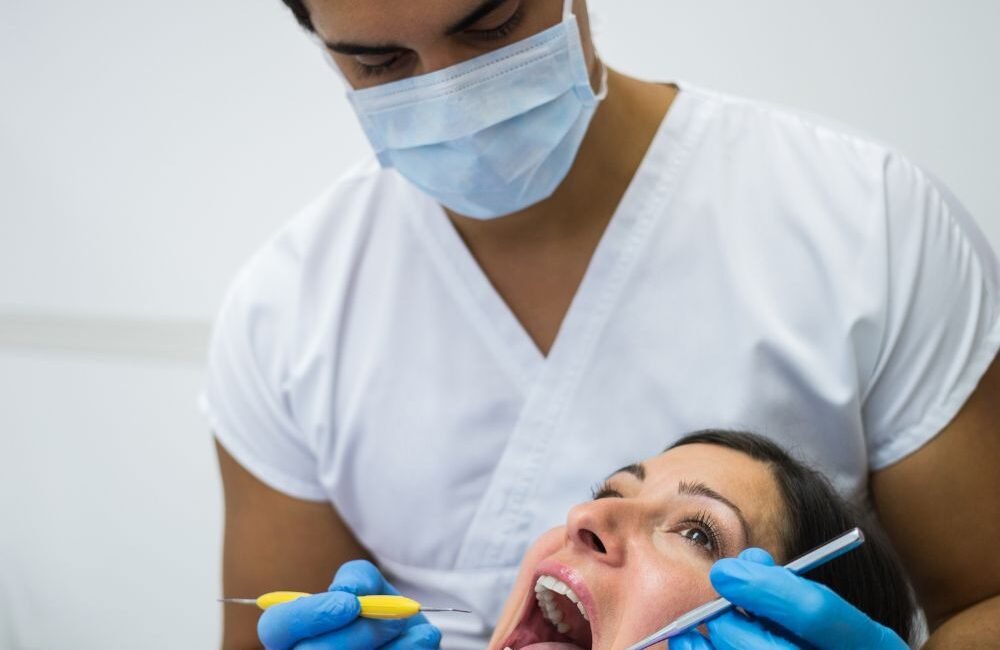
Preventive dental care is the most cost-effective, health-preserving approach to oral health — yet it’s often the most neglected. In 2025, dental professionals emphasize not only what you do at home but how and why you do it. The right habits stop decay before it starts, lower risk of gum disease, reduce systemic health risks, and can literally save you thousands of dollars in restorative treatments down the road. Below are five dentist-backed habits to adopt now, plus practical steps to make them stick.
1. Master the Two-Minute Brush (But Do It Right)
You’ve heard “brush twice a day,” but technique matters. Use a soft-bristled toothbrush and fluoride toothpaste. Angle the brush 45 degrees toward the gum line and use gentle circular motions rather than aggressive scrubbing—vigorous brushing can erode enamel and cause gum recession. Brush for a full two minutes to ensure every surface is covered. Electric toothbrushes with built-in timers can help enforce the habit and are often more effective at plaque removal than manual brushes.
Pro tip: Replace your toothbrush (or brush head) every three months or after a cold. Fresh bristles clean better and reduce bacteria buildup.
2. Floss — And Don’t Skip Interdental Cleaning
Toothbrushes clean only about 60% of the tooth surface. The rest — especially between teeth — requires floss or an interdental tool. Daily flossing removes the biofilm that causes cavities and gum inflammation. If traditional floss is difficult, try floss picks, interdental brushes, or an oral irrigator (water flosser). For people with bridges or braces, interdental brushes are often the most effective.
If you’re unsure about technique, a quick demo at your dental office can make flossing feel easy and effective. Many clinics also offer tailored tips for patients with tight contacts or sensitive gums.
3. Keep Routine Dental Checkups and Professional Cleanings
Prevention includes professional care. Routine dental exams and cleanings every 6–12 months let dentists find early signs of decay, gum disease, enamel wear, and oral cancer. A professional cleaning removes hardened tartar that brushing and flossing cannot. Identifying problems early typically reduces both treatment complexity and cost — a small filling is far less expensive than a root canal and crown.
If you don’t have a consistent provider, consider scheduling an exam with a trusted local practice. For instance, many patients book routine maintenance with clinics like Aviator Dental Hygiene to keep their checkups on schedule.
4. Diet, Nutrition, and Protective Behavior Matter
Your diet plays a major role in oral health. Frequent snacking on sugary or acidic foods bathes teeth in enamel-eroding acids, increasing decay risk. Limit sugary beverages, drink water between meals, and use a straw for staining drinks. Eating calcium-rich foods and keeping adequate vitamin D and phosphorus supports enamel strength. Chewing sugar-free gum after meals can stimulate saliva, which neutralizes acid and helps re-mineralize teeth.
Also consider lifestyle behaviors such as using a night guard if you grind your teeth (bruxism). Grinding chips away enamel and causes fractures; a custom guard from your dentist is a small investment compared to restoring a broken tooth.
5. Use Preventive Products Strategically
Beyond brushing and flossing, a few targeted products make a difference: fluoride mouth rinses, prescription-strength fluoride for high-risk patients, antimicrobial rinses for gum disease, and re-mineralizing pastes when enamel is demineralized. If you’re prone to cavities, ask your dentist about dental sealants for molars — especially for children and young adults.
You can rely on Aviator Dental Hygiene for Dental Sealants. Clinics such as Aviator Dental Hygiene, often provide personalized preventive plans including nutrition counseling and home-care coaching.
And when you choose a clinic for preventive care, look for offices that emphasize patient education and individualized plans.
Making Habits Stick
Behavior change is easier with small, consistent steps. Pair brushing with another regular routine (e.g., after breakfast and before bed), set reminders, or use a brush that plays music for two minutes. Treat flossing as essential — not optional — and schedule your next dental cleaning before you leave the office.
Final Thought
Prevention doesn’t just protect your smile — it protects your overall health and your wallet. Investing in consistent, evidence-based daily care plus regular professional maintenance yields the best long-term results. To get started with a preventive plan tailored to your risk factors and lifestyle, consider a visit to Aviator Dental Hygiene where many patients find a combination of clinical expertise and practical guidance.

